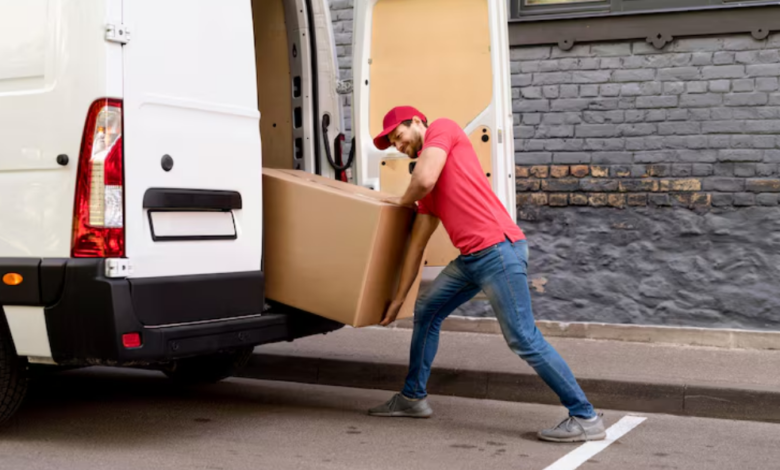How Long Should Loading a Moving Truck Take? Expert Insights from Virginia Movers

Factors That Affect Loading Time According to Movers in Virginia
When you ask, “what does a mover do,” it’s not just about lifting boxes. Moving teams make sure your things travel safely, but how long that process takes depends on several different situations. Let’s look at the main factors that really change your truck loading timeline according to movers in Virginia.
Type and Quantity of Belongings
- The kinds of items you’re moving (furniture, appliances, fragile pieces) make a big difference in loading speed.
- More stuff means more time, plain and simple. Even a small apartment can surprise you with how many boxes you end up with.
- Packed and organized belongings usually go onto the truck a lot quicker than loose or oddly shaped items.
| Home Size | Approximate Item Count | Estimated Loading Time |
| Studio/One-Bedroom | 20-30 boxes | 1-2 hours |
| Two-Three Bedroom House | 40-60 boxes | 3-5 hours |
| Four+ Bedroom or Large Home | 70+ boxes | 6+ hours |
Sometimes, you think you have everything under control but that massive sectional sofa or your collection of kitchen gadgets can throw off your estimated loading time.
Accessibility of Your Home
- First-floor access is way easier than apartments with no elevator options.
- Narrow staircases, long hallways, or loading docks slow everything down.
- Far-away parking or lots of steps add extra time, too.
Experience Level of the Moving Team
- Veteran movers know how to pack a truck fast and safely.
- Newer or less-experienced teams might not work as quickly, especially with tricky furniture or tight spaces.
- When you search “what does a mover do,” remember: part of their job is solving these exact problems on the fly.
- The right team, tools, and plan can easily shave an hour or more off the whole process.
Working with skilled movers in Virginia often means everything gets done faster—and with less risk of damage—than trying to tackle it yourself.
Average Loading Durations for Various Home Sizes
Studio and One-Bedroom Apartments
For a smaller space like a studio or one-bedroom apartment, the time it takes to load a moving truck is usually less than you’d expect. When the movers are experienced and everything is boxed up, you can usually count on 1.5 to 3 hours to load up your things. Here’s a quick breakdown:
| Apartment Size | Estimated Loading Time |
| Studio | 1–2 hours |
| 1 Bedroom | 2–3 hours |
- Less furniture and fewer boxes speed things up.
- Elevators or stairs may add a bit of time, especially in apartment buildings.
- Having parking close to the entrance makes a big difference.
Just because you have a small space doesn’t mean skip the prep—having everything packed neatly can save you lots of time.
Family Homes and Multi-Bedroom Houses
When you’re dealing with a two- or three-bedroom house, expect loading to take a fair bit longer. Most movers in Virginia say 3 to 6 hours is standard for these homes.
| Home Size | Estimated Loading Time |
| 2 Bedrooms | 3–5 hours |
| 3 Bedrooms | 4–6 hours |
- Lots of furniture and boxes slow things down.
- Bedrooms upstairs can mean lots of trips up and down steps.
- Large appliances or fragile items add to the total time.
Large Estates and Specialty Moves
Loading a big house or an estate? That’s a whole different story. These jobs can go well over 6 hours, sometimes stretching out to a whole day (especially with lots of heavy or specialty items).
| Estate Size | Estimated Loading Time |
| 4–5+ Bedrooms | 6–10+ hours |
| Specialty Moves* | Varies (6+ hours) |
*Specialty moves include things like pianos, large safes, or custom-built items that need extra care and planning.
- Unusual objects or antiques may slow things down.
- Extra time is needed for careful padding and securing of expensive items.
- Estates often mean longer walkways or complex routes from the house to the truck.
Even with a moving crew, bigger homes take time, and every extra room or large item adds to the total hours spent.
Essential Tips from Movers in Virginia for Faster Loading
Careful packing and clear labels make a big difference in how quickly your moving truck gets loaded. It may sound minor, but pro movers in Virginia swear by a good system. Here’s what really speeds things up:
- Pack by room and keep similar items together
- Mark each box with what’s inside and which room it goes to
- Label any fragile boxes on multiple sides
Spending a bit more time labeling now pays off fast when boxes start rolling onto the truck. It makes the difference between a smooth move and total confusion.
Disassembling Furniture Beforehand
If you can, break down bigger furniture the night before. Movers say it saves more time than you might guess. Here’s how to tackle it:
- Remove legs from tables, couches, or beds
- Keep small hardware like screws in labeled baggies taped to the furniture
- Stack parts together and set them aside out of the main path
Not only is it easier and faster to move things in smaller pieces, but it also helps protect your stuff and your walls.
Staging Boxes and Items for Quick Access
Movers in Virginia always notice when homeowners have prepped their space. You don’t have to go wild, but these steps help:
- Move packed boxes near the door or in one room close to the exit
- Place heavy items on the bottom and fragile stuff on top
- Make sure nothing blocks the hallway where movers will walk
This simple prep shaves precious minutes (even hours) off loading. Think of it as setting yourself up for success before the moving crew even arrives.
Importance of Professional Loading Services in Virginia Moves
When you’re moving in Virginia, loading the truck right is half the battle. Many people think they can just wing it, but there’s a good reason why most folks—and companies, especially office furniture moving companies—call in the pros.
Efficiency Compared to DIY Moves
Professional movers get the job done faster and with fewer mistakes. They do this day in and day out, so they have quick systems and know the best order for loading items. Trying to load a truck yourself means lots of backtracking and wasted time.
- Pros know how to use every inch of truck space
- Teams work together, so there’s less downtime
- You’re less likely to run out of room mid-move
Here’s a rough comparison:
| Move Type | DIY Loading Time | Pro Loading Time |
| Studio Apartment | 2-4 hours | 1-2 hours |
| 3-Bedroom House | 6-8 hours | 3-4 hours |
| Large Office Move | 8-12 hours | 4-6 hours |
Damage Prevention and Safe Handling
Nobody wants a broken chair or a scratched desk. Movers from office furniture moving companies use proper techniques and padding to keep everything safe.
- Items are wrapped and protected
- Heavy stuff is loaded on the bottom, light stuff on top
- Fragile items are strapped in securely
With pros, you can relax a little knowing your things aren’t just tossed into the truck. Small bumps in the road won’t lead to a disaster inside the trailer.
Utilizing Proper Loading Equipment
Professional movers show up with straps, dollies, and ramps. This means even the heaviest or weirdest-shaped things get in and out of the truck without anyone throwing out their back.
- Dollies speed up heavy lifting
- Moving straps help with tall furniture
- Ramps for easy rolling
Not everyone has this stuff lying around. Renting equipment can be expensive and honestly, regular folks often don’t use it right. So, hiring professional loading help—especially for office moves—can really make everything smoother.
Common Challenges Faced by Movers During Truck Loading
Even with the best planning, movers often run into some pretty tough situations on loading day. These challenges can slow the process down and make everyone’s life a bit harder. Here are some of the most common hiccups moving crews see in Virginia:
Tight Spaces and Long Carry Distances
Older homes and apartment buildings in Virginia don’t always have big hallways, wide doors, or handy elevators. Trying to angle a couch through a narrow staircase or fit a mattress into a small elevator isn’t easy. Movers might have to walk items further than expected, especially if the truck can’t park close by. This adds time and can make larger moves, well, drag on. You’ll notice this more if you live in the city or anywhere with limited parking or loading zones.
Frequent Obstacles in Tight Spaces
- Narrow staircases
- Tight elevator access
- Long hallways from apartment to truck
- Multiple floors without elevator access
Weather Impacts on Moving Day
Virginia’s weather can be unpredictable—one minute it’s sunny, the next there’s a sudden downpour. Rain and snow not only slow movers down, but can also lead to slips, wet floors, and muddy boxes. Summer heat also takes its toll, forcing everyone to take more breaks. It’s one of those things you can’t do much about, but pro movers always have tarps and towels in the truck, just in case.
Typical Impact of Different Weather Conditions
| Weather Type | Common Issues | Extra Time Added |
| Rain | Slippery surfaces, wet packaging | +30 mins – 1 hr |
| Snow/Ice | Slow carry, additional safety steps | +1 – 2 hours |
| High Heat | Frequent breaks, dehydration | +20 – 40 mins |
Navigating Parking Restrictions and Apartment Rules
Trying to find a legal parking spot big enough for a moving truck in a busy Virginia neighborhood isn’t always simple. Some places require permits, and certain apartment complexes limit where and how long vehicles can sit. Sometimes, movers are stuck circling the block or hauling everything across a crowded lot.
Common issues movers face:
- Not enough parking for large trucks
- Permit restrictions or specific loading hours
- Strict building rules (quiet times, limited access to loading docks)
If you want fewer headaches on moving day, call your building management or HOA ahead of time. Get all the details in writing so everyone’s on the same page.
How to Prepare Your Virginia Home for Efficient Truck Loading
Getting your house ready for movers feels like a big project, but some basic steps can save a lot of headaches. Good prep means less time spent loading up the truck and fewer chances for accidents or broken stuff. Here are some real-world ideas movers in Virginia wish every customer would try:
Clearing Pathways and Entrances
- Walk the main routes from each room to your front door or driveway. Move any rugs that could trip someone, tuck away cords, and shift or remove small furniture out of the way.
- If you’re in an apartment, prop open main doors or find out if the building can help with that.
- During wet months, put down old towels or tarps to keep floors dry and safe.
Coordinating With Your Moving Team
- Have a quick talk with your movers when they arrive. Go over what goes and what stays. Point out extra fragile or heavy stuff and any rooms that are off-limits.
- Label boxes with both the contents and which room they go in — this avoids everyone asking the same questions over and over.
- If anyone else is helping, assign jobs ahead of time so folks aren’t tripping over each other.
Managing Pet and Family Safety On Move Day
- Keep pets in a separate, closed room or at a friend’s house so they don’t slip outside while doors are open all day.
- Little kids should be at a sitter’s or with another adult, not wandering around.
- Remind older kids or other family members about what areas are off-limits while things are being moved.
The less chaos at home, the faster (and less stressful) your move will be. Most movers agree: a little prep spent before they arrive pays off big on the back end.
| Prep Step | Time Saved (on average) |
| Clear walkways/doorways | 20–30 minutes |
| Review with moving team | 10–15 minutes |
| Arrange for pet/kid care | 30–60 minutes |
Estimating Loading Times When Hiring Movers in Virginia
Figuring out how long it takes movers to load a truck isn’t just a guessing game—there are patterns, averages, and important questions you should ask when booking movers in Virginia.
What to Ask Your Moving Company
It’s easy to end up lost when thinking about how long movers in Virginia will take to load your things. Don’t leave it up to chance—start by asking your movers these questions:
- How many movers will be assigned to my job?
- Do you charge by the hour, flat rate, or by weight/volume?
- What previous experience do you have with similar home sizes?
- How do you handle bulky or fragile items?
- Are there extra fees for tight spaces or walk-up apartments?
Differences Between Local and Long-Distance Moves
There are a few big differences depending on how far you’re going. If you’re staying local, the focus is on efficiency. For long-distance, movers often take extra time for careful packing, inventory, and securing the load for highway travel.
| Move Type | Time to Load (Typical 2 Movers) | Extra Steps Usually Needed |
| Local (within 30 miles) | 2-4 hours (1-2BR), 4-6 hours (3-4BR) | Maybe disassembly/reassembly |
| Long-Distance | 3-5 hours (1-2BR), 5-8 hours (3-4BR+) | Wrapping, special inventory, extra padding |
Factors That May Delay Your Move
Even the best Virginia movers can run into problems that slow things down:
- Heavy traffic or weather issues
- Last-minute packing or loose items
- Stairs, long walks, or limited elevator availability
- Strict move-in/out building rules or parking restrictions
Planning ahead and talking to your moving crew about specifics can really keep loading time on track, helping you avoid unwanted surprises on moving day.
So, when you start asking “how long does it take movers to load a truck?” remember: clear communication and a little planning make all the difference in Virginia.
Wrapping Up: How Long Does It Really Take?
So, when it comes down to it, loading a moving truck isn’t an exact science. There are a lot of things that can change how long it takes—like how much stuff you have, how many people are helping, and even the weather. Some folks might be done in a couple of hours, while others could be at it all day. If you’re hiring movers in Virginia, they’ll usually have a pretty good system and can give you a rough estimate. But if you’re doing it yourself, just remember to give yourself more time than you think you’ll need. It’s always better to finish early than to be rushing at the last minute. And hey, don’t forget to take breaks and maybe order some pizza. Moving is tough, but you’ll get through it.
Frequently Asked Questions
How long does it usually take to load a moving truck for a two-bedroom house?
Loading a moving truck for a two-bedroom house usually takes around 2 to 4 hours, depending on how many things you have and how easy it is to get to your home.
Can I make loading faster by packing everything before the movers arrive?
Yes, packing and labeling all your boxes before the movers come makes everything go much faster. It helps the movers know where things go and saves a lot of time.
Do movers in Virginia bring their own equipment for loading?
Most professional movers bring their own tools like dollies, straps, and blankets to help move your stuff safely and quickly.
What should I do if it rains on my moving day?
If it rains, cover your boxes with plastic or tarps and try to keep pathways dry. Movers are used to bad weather, but a little extra care helps keep your things safe.
Is it cheaper to load the truck myself instead of hiring movers?
Doing it yourself can save money, but hiring movers can prevent damage and injuries. Movers also work faster and know how to use the space in the truck better.
How can I help movers load the truck more quickly?
You can help by clearing walkways, keeping pets and kids out of the way, and having everything packed and ready to go before the movers arrive.





